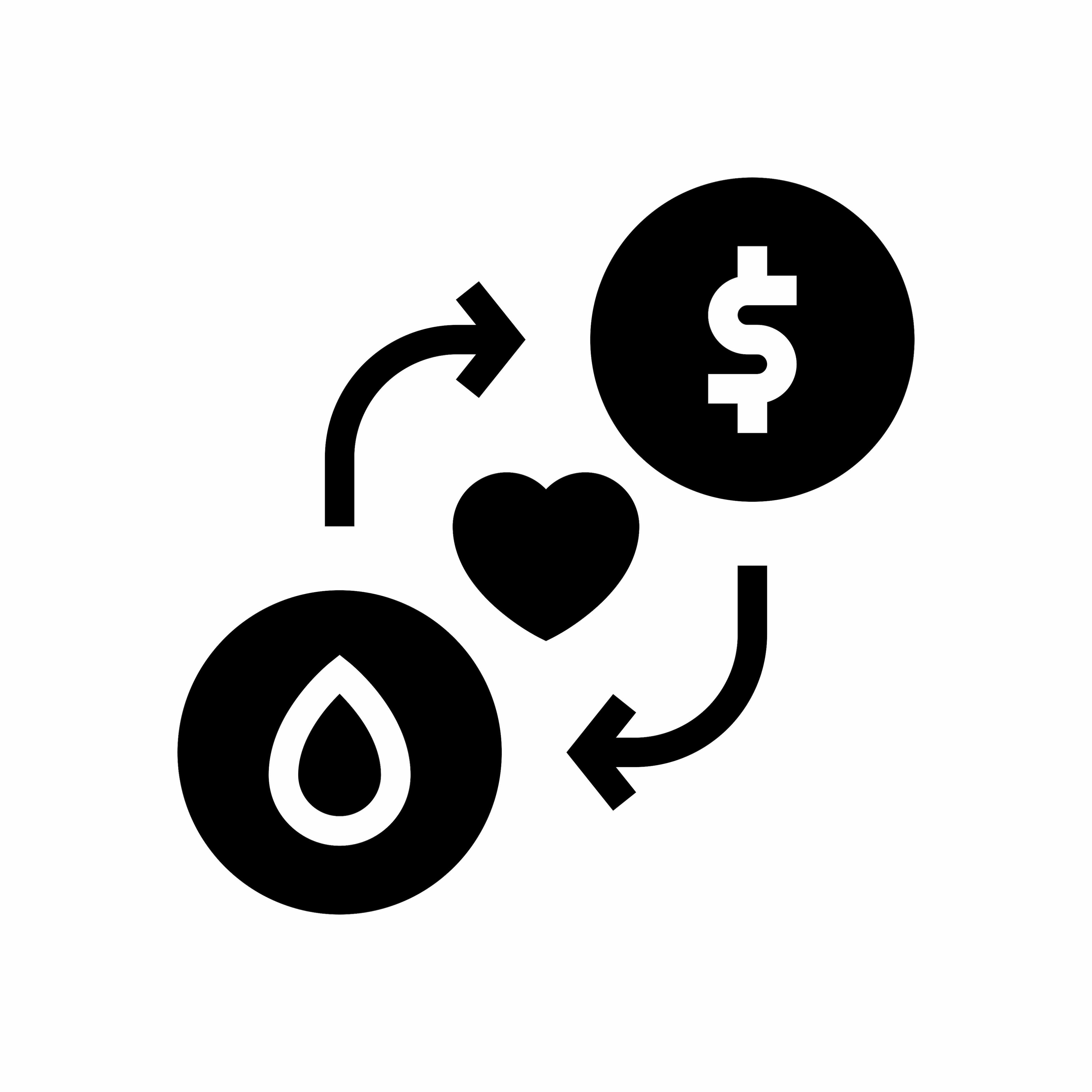Are You Feeling Lost or Stuck on Your Career Path?
Here are three ways to regain your sense of direction and get unstuck.
Do you feel stuck?
Like really stuck; the kind where you are in the mud, and don't know how to get yourself out? What about lost? Do you feel this way too?
I've felt this way before. All of us have. Whether in regards to our jobs, lives, relationships, or just circumstances. It is terrifying!
A few years ago, I was on a canyoneering trip with an experienced guide. We had a few setbacks with reaching the bottom of the canyon and as a result, the sun was going down by the time we reached our goal. Thankfully, we had brought a few battery operated headlamps (literal flashlights you wear banded around your head), but one thing we hadn't anticipated was that there would be a flash flood warning while we were at the base of the canyon.
When we felt the first few drops of rain, we realized just how urgently we needed to get out of this situation! Only problem, now that darkness was encroaching, and the rain was beginning to pour more heavily, our guide could not figure out the orientation to get back to the car.
The rain became so heavy that we had to yell just to hear each other. Me and another person in our group had some experience rock climbing and attempted to free climb a rockwall in hopes that our vision would increase about what direction to go. Because of the slickness of the rockface, I ended up falling and still have a minor scar on my left forearm to remind me of this experience.
When we finally found our way back to the car, which took a lot longer than we had hoped--by this point we were soaked and at risk of hypothermia--we were pretty frustrated to find that our truck was stuck in thick mud from the torrential downpour.
Luckily--our guide had come in a four wheel drive all-terrain jeep and had parked it away from the truck, on a firmer foundation. He also had plenty of heavy duty rope to attach to his jeep so he could dislodge us.
Why do I tell you this story? Because I know what that feeling feels like. The sheer gut-wrenching fear of being lost and stuck and not knowing how to get out--how to free yourself--especially when the metaphorical rains are coming down and the mud is coming up.
When it comes to a career path--why do many people find themselves feeling lost or stuck?
A question that I have been asking myself for a long time now is "Why do people not take charge of or plan their career paths?" Why do people end up getting lost or stuck, especially doing a job they don't like or isn't taking care of their needs adequately? It seems that some people are almost born knowing what it is they want to do--be a teacher, a doctor, a lawyer--and others of us find ourselves working at a dead-end job or living paycheck to paycheck not really knowing where we are going to end up or how we will get there.
Maybe life circumstances that were outside of our control helped create this predicament--maybe illness, divorce, lack of a "guide"--but the good news is, there is a way out!
May I make a few suggestions for how to find your right path and get unstuck?
1. Know yourself
There are a ton of resources out there to help you get a better sense of direction and knowledge about what type of work you should be doing. I'll suggest two that can help a lot, but before I do, I want to share a concept with you about why you may have made some of the choices you have up until this point that may have resulted in you feeling the way you are right now.
Martha Beck, a life coach, wrote a book a number of years ago called "Finding Your Own North Star: Claiming the Life You Were Meant to Live." In the book she describes a concept about two parts of ourselves--one is called our Social Self, the other our Essential Self.
The Essential Self is you in your truest form. No matter what your circumstances, this part of you--your personality, preferences, innate gifts and talents--is there at your core and always ready to be plugged into and help guide you. This part of you is where pure joy comes from and can direct you to your right path--whether that be career, relationships, life goals, etc. When you are on a wrong path, it is what produces the feelings inside of you that something is off or amiss.
Your Social Self is the part of you that society, your parents, the culture you were raised in, and others trained into existence. It is the part of you that discovered early on that in order to preserve yourself--you would need to learn (and fast!) how to please others. (Side note, great question to ask yourself when making decisions: Who am I trying to please?) It is the part of you that learned very quickly that you need to raise your hand before speaking, that being polite is socially acceptable, not to burp at the dinner table, and to say please and thank you. If you are feeling mad or like you want to scream, it isn't typically socially acceptable in most situations; your social self learned this one fast as a child.
Here is an example of how the Social Self affects our decision making: someone at some point in your life told you that you aren't good at math (maybe it was a parent, teacher, best friend, or yourself). You believed them and so your Social Self ruled out 20 possible career paths because it knew that math would be involved in all of them.
When these two parts of ourselves are working in harmony, we are perfectly in line with our internal compasses which will help us know where to go. When these two are out of line with each other, we may find ourselves walking down paths that aren't in line with our true selves and in relationships that don't satisfy. And we may find ourselves doing work that is meaningless to us and lacking a feeling of fulfillment because we may have found ourselves making choices that are more in line with our socialized parts of ourselves than our Essential Selves.
The way a rather prominent business woman by the name of Oprah Winfrey described this is that when you are doing the right kind of job/work, you will feel energized. [*] Maybe for one person that is accounting and another person it is working closely with people. Only your Essential Self knows this.
Here are two free tools that can help you regain alignment to really know yourself and identify some of your innate preferences:
16 Personalities - a version of the Myers Briggs personality test that helps you figure out and make sense of some of your inborn characteristics and qualities. It additionally makes suggestions on types of work that you may excel at. One recommendation for when you take the quiz: choose the options of what you naturally like and want to do, NOT what you have been socialized to do. For example, if Julie was taught that when she goes to a party it is important to meet as many people as possible, but her natural inclination is to talk to one or two people and hang out by the punch bowl all night, she should answer the quiz with what she would naturally want to do NOT what she have been taught or trained to think is socially expected of her.
Principles You - a free online assessment developed by Ray Dalio, founder of Bridgewater Associates (an American investment management firm), to help individuals understand their innate way of thinking and working with others. Dalio found that when it came to understanding his employees, he wasn't getting enough information from other assessments that are available so he contacted psychologists Dr. Adam Grant, Dr. John Golden, and Dr. Brian Little to help him develop a more robust way of understanding individuals.
On the website Dalio says, "Your approach to thinking can reveal what type of work you might prefer, at which aspects of a job you are more likely to excel, and how you tend to approach and solve problems." Additionally, when speaking about the Principles You assessment, he says: "I believe that accurate self-knowledge is the key to success in work and life, and the most important thing for individual development and for building teams." [*]
2. Be open to trying out jobs
Adam Grant, an organizational psychologist who studies how to make work not suck, gave a podcast a couple years ago called, "The Perils of Following Your Career Passion." In this particular podcast, he and Angela Duckworth, a psychologist at the University of Pennsylvania who studies grit and defines it "as passion and perseverance toward a long-term goal," compare finding the right career/job fit for individuals to "dating." Angela uses this analogy to talk about trying out career paths/fields of work: "I think you have to date a lot--for most of us, we had to sample widely. That's generally what's found when you look at people who develop interests over their life."
During the podcast, both Adam and Angela drew the conclusion that to find a job that is the correct fit, a person has to be willing to try new things and work past setbacks and frustrations. Adam says, "Don't pursue the job that your past self thought would make you happiest. Follow your curiosity into the job where you think you'll learn the most. Or you can gain mastery over useful skills and build your passion over time."
He continued on to say, "Passion is a consequence of effort, not just a cause. Take a recent study of entrepreneurs. When they weren't excited about their start-ups, but put time in anyway, they actually became more enthusiastic over the next week. Their passion grew as they made progress."
Be willing to try out different jobs and careers to find the right fit for you and your circumstances.
In a recent post I asked you to determine what you could be good at. Did you do it?!
I suggested focusing on writing, marketing, engaging with people, numbers, or computers. What is it out of those things that you feel most drawn to?
I also suggested picking a core business path. There are core business paths that you can walk down that don't all require a degree to get into a successful position. Marketing, sales, hiring, even accounting and product development in the tech world are potential paths that people can walk on without a degree in that specific field.
Be willing to experiment. After you take that free 16 Personalities and Principles You assessments, you may have an even clearer picture about what some of these paths are you should be willing to explore.
3. Adopt a growth mindset
You CAN get a better job! You CAN get/feel unstuck! You CAN live in alignment with who you are! You CAN learn new skill sets. You CAN get better at math! Do you believe me?
Much of what you will achieve and accomplish in your life (from taking control of your career path to being in the right relationships) will have to do with what you believe you CAN do.
Sadly, for some of us, our Social Selves were taught that we are limited in what we CAN do. We think that if we weren't born with certain abilities we CAN'T gain them. True, you have certain things you are naturally better at, but effort CAN get you competent at many, many things!
Carol Dweck, a Stanford psychologist, and her research on having a growth mindset, has shattered the validity of these self limiting beliefs. A lot of us get stuck in a fixed mindset, but when we learn to start adapting a growth mindset--that is when we can change our circumstances. A fixed mindset is thinking that you CAN'T change things; a growth mindset is knowing you CAN.
Dweck writes: "When you enter a mindset, you enter a new world. In one world — the world of fixed traits — success is about proving you're smart or talented. Validating yourself. In the other — the world of changing qualities — it's about stretching yourself to learn something new. Developing yourself.
"In one world, failure is about having a setback. Getting a bad grade. Losing a tournament. Getting fired. Getting rejected. It means you're not smart or talented. In the other world, failure is about not growing. Not reaching for the things you value. It means you're not fulfilling your potential.
"In one world, effort is a bad thing. It, like failure, means you're not smart or talented. If you were, you wouldn't need effort. In the other world, effort is what makes you smart or talented."
In conclusion, I want to recommend one last thing that can help you on your journey to getting unstuck: if you have ever felt completely lost about which path to take forward, you aren't alone. Best selling author Elizabeth Gilbert spoke about a letter she once received from a woman who felt completely lost in her career path. Check out this podcast episode called "The Curiosity Driven Life" if you are feeling the same.
Read over some of my other recent blog posts for concrete steps you can take to define and develop skill sets to go down specific career paths. I've suggested several things you can do TODAY to start moving down a better path. In upcoming weeks and months, there are going to be even more resources I will be making available to help you with this!
I'm here for you. My headlamp is shining to help guide you forward through the rain. I've got a lever, a four wheel drive truck, and plenty of heavy duty rope. Let's get you unstuck and moving forward in the right direction to your desired destination!!!
-Ryan

Ryan Kay
Helping people get the career of their dreams!
Related articles

Make an Extra $900 per Month: Earn Money with Plasma Donations
Learn how you too can make some extra cash by donating plasma. Read this blog post to discover my experience at BioLife Plasma and how you can get up to $900 in the first month. Plus, watch my video where I share all the details on what it's really like to donate plasma. Don't miss out on this easy and fast side hustle opportunity!

Office Sidekick: Work Smarter, Not Harder, with ChatGPT!
Are you a mom juggling work tasks and household duties like a circus performer? Do you wish you had more time for bedtime stories and quality time with your family? Well, we've got great news for you! Our upcoming webinar is tailored specifically for modern supermoms like you who want to level up their office game with the help of AI.